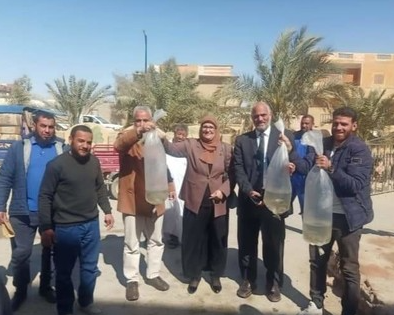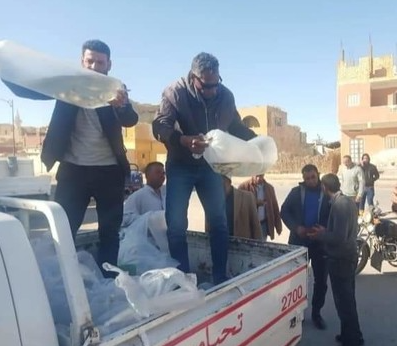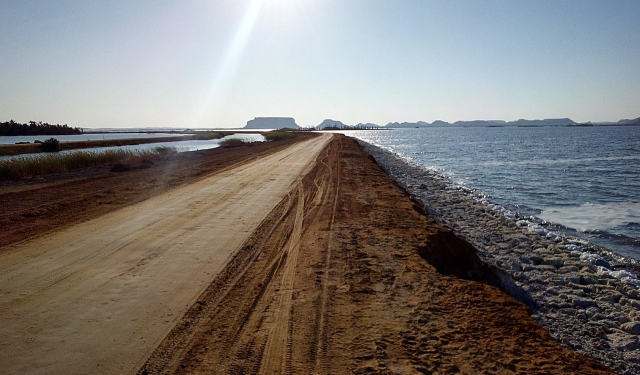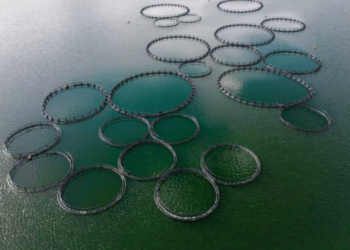Restocking fish in Siwa Oasis, a support for the fishing communities in Egypt – Involving hatchery programs and releasing fry, represent an effective restocking solution.
Particularly, in areas where there is intense fishing activity and overfishing pressure and where a catch monitoring and data collection plan is in place, it is possible to restock the fish resource releasing hatchery fish in the same ratio, considering quantity of fry or fingerlings released, specie, season and so on.
Increased fish resource through the restocking actions could lift the economy of coastal communities in several African and Mediterranean contexts, at the same time activating hatcheries and supporting them through the production of species for restocking, means promoting aquaculture and supporting the sustainability of the entire value chain.
One of actions has been implemented within the social Egyptian strategy adopted in the field of agriculture, fishing and livestock, and through the support of the Lakes and Fisheries Protection and Development Authority. The overall object of the project is focused on the achievement of sustainable development of fishing in vulnerable areas and linked to Egypt’s 2030 Vision, the support of the fisheries industry in Egypt represent a national priority.
The Lakes Protection and Development Agency, executive branch in Matrouh Governorate, on March 2023, released one million fries of mono-sex Nile Tilapia fish in Siwa Oasis for restocking.

In coordination with Matrouh Governorate, National and Local Authorities, and in the presence of several community members, an awareness demonstration has been carried out – it represent a necessary participatory involvement of the citizens and other local stockholders.
The specific object is targeted on achieving optimal economic exploitation of the Oasis Lakes, in terms of water and fish resource. It poses a mutual benefit of the local people of Siwa and the surrounding environment and, of course, this must be science-based.
The Executive Director of the Lakes Protection and Development Agency, Mr. H. Al-Hussein Farhat, followed the directives of President of the Republic, Abdel Fattah El-Sisi, always interested to the field of aquaculture and fish production. This reflects the Authority’s interest in the development of public water bodies and to expand fish farming, protect, manage and increase the fish stocks, and achieve self-sufficiency for the citizen of seafood.
One million Nile tilapia fry were monitored from the Saftah Khaled fish hatchery, which is one of the hatcheries involved in the national strategy for fish restocking and water bodies restoration in Siwa.
During the public speech, Mr. Mohamed Bakr, President of Siwa Municipality, added that the city aims to expand fish farming in the oasis and work to put in place projects that generates income for the oasis community and families by maximizing agricultural drainage waters, especially as it is clean and free of any pollutants.

For his part, Engineer Ahmed Jameel, Director of Fisheries in Matrouh Governorate empathized that tilapia fry restocking, comes within the plan of the Authority for the development of lakes, stressing the sustainable strategy of fish stock preservation.
Fishery Management Practices: releasing captive-bred native species into the wild – It is a good conservation practice to bolster threatened and key commercial populations of native fish by breeding them in captivity and releasing them into the wild. In fact, it has been standard practice for natural resource managers and fisheries but need to be science-based and need the support and awareness of the local fishers and authorities for monitoring and control on science-based approach.
Restocking fish in Siwa Oasis, a support for the fishing communities in Egypt









